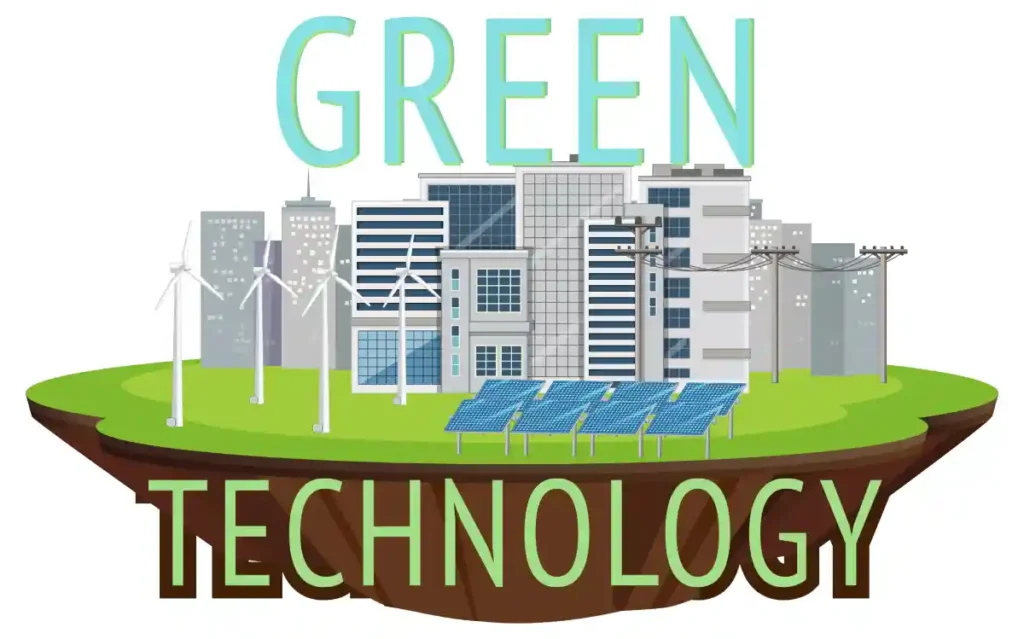Public concern over PFAS (per and poly-fluoroalkyl compounds) pollution has increased, particularly due to their widespread presence in drinking water. The NIH has connected PFAS compounds to several health problems, such as immune system disturbance, liver damage, and cancer.
With PFAS detected in 97% of Americans’ blood, the need for sustainable solutions is more urgent than ever. As a result of tightening government regulations on PFAS, innovation in green tech has spurred. Companies are now developing solutions to reduce or eliminate PFAS pollution.
Due to this urgent problem, the green tech industry is growing. Businesses need to seize the opportunity to address environmental risks and satisfy the growing need for environmentally friendly solutions. This blog post explores how the PFAS crisis reshapes company priorities and markets, driving growth in the green tech sector.

Are PFAS a Catalyst to a Green Tech Boom?
Environmental concerns have gained prominence due to the PFAS contamination disaster, compelling companies to reassess their ecological effects. The ongoing firefighting foam lawsuit against AFFF manufacturers, with billion-dollar settlements, is maintaining steady pressure toward change.
AFFF, or Aqueous Film-Forming Foam, is used to put out fires caused by flammable fluids and contains an alarming amount of PFAS. A recent USA Today investigation highlights that AFFF used by the military and airports is a major contributor to PFAS contamination. As sectors, including firefighting, aviation, and automotive, shift towards safer alternatives, the onus is on green tech to devise solutions.
Green-tech businesses have reacted quickly, applying their knowledge to tackle this new issue. Yahoo Finance reports that 500 corporations are already slated to develop PFAS alternatives and remediation technologies. These companies are creating solutions that support public health and environmental sustainability, from water filtration systems to PFAS-free manufacturing techniques.
New technologies, including bioremediation, sophisticated water filtration systems, and PFAS destruction methods, create a healthy market for green technology solutions.
The Role of Regulations in Pushing Green Tech Forward
Governments are enacting stricter rules on pollution-related businesses as awareness of PFAS contamination grows. The EPA is leading this change with a roadmap to contain PFAS. Businesses are under regulatory pressure to use greener technology to stay out of legal trouble and avoid paying hefty fines.
According to MIT, over 15,000 PFAS are used in various products we use regularly. This has led to a race to find safer alternatives to these compounds. Companies that once relied on PFAS are now investing in research for safer manufacturing processes, boosting demand for green tech innovations. There is a growing interest in companies that manufacture coatings, foams, and firefighting materials devoid of PFAS. There is also an innovation drive to look for technologies to break down the existing PFAS in the environment.
Green IT firms are essential in assisting businesses in navigating this intricate regulatory framework in response to these developments. These businesses are reducing the environmental impact of PFAS. They ensure industries can operate sustainably while complying with regulations.
Emerging Business Models Around PFAS-Free Alternatives
The PFAS problem has also accelerated the proliferation of companies providing PFAS-free substitutes for conventional products. Businesses are spending money on research to develop goods that don’t rely on dangerous chemicals, from textiles to packaging materials.
Due to court settlements, businesses manufacturing PFAS-rich products are also adding money to the PFAS remediation cause. TorHoerman Law reports that 3M agreed to pay $12.5 billion to clean up municipal water supplies. Chemors, DuPont, and Corteva agreed to compensate with $1.2 billion. This change aims to capitalize on the expanding market of environmentally concerned consumers while simultaneously resolving customer concerns.
Furthermore, the global implementation of more stringent environmental rules has opened up a profitable market for companies. It offers PFAS destruction and mitigation services, such as environmental monitoring, soil remediation, and water filtering technology.
For example, The PFAS filtration market is currently valued at $2 billion. According to the 2024 Market Research Report, it is expected to reach $2.8 billion in five years. Investors are placing their bets on green technology’s long-term ability to end the PFAS catastrophe now.
FAQs
What steps are green tech firms taking to address PFAS contamination?
Green tech businesses are developing tailored adsorbent materials that specifically target PFAS compounds. Such materials aim to lessen or completely eradicate PFAS pollution from water and soil. Possible hopes include sophisticated filtration systems, PFAS-free production procedures, and bioremediation technologies. Overall, their focus is to explore non-fluorinated surfactants that do not pose the same environmental risks.
Why are alternatives free of PFAS becoming increasingly popular in the market?
PFAS-free alternatives are becoming popular due to growing consumer and industry concerns about the health hazards linked to PFAS exposure. The pressure is complemented by a growing number of organizations and initiatives focused on evaluating and promoting PFAS-free products.
What impact do laws have on the development of green technology?
Due to stricter laws on PFAS, businesses are being pushed to invest in green technology solutions that lessen environmental effects. One example is the Energy Policy Act and Clean Air Act in the U.S., which supports renewable energy projects and emissions reductions.
The PFAS problem has brought attention to the need for creative solutions. It gives the green tech sector unheard-of chances to expand and prosper. Green tech businesses address PFAS pollution by providing PFAS-free alternatives and advanced filtering systems, transforming affected sectors. Consumer preference for eco-friendly solutions is increasing. Given this fact, green technology will become crucial in addressing PFAS issues as regulations tighten.






